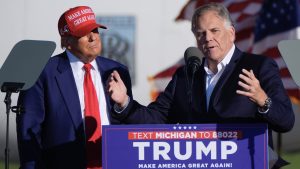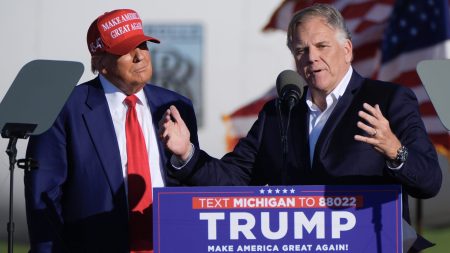The Internal Revenue Service recently announced a new initiative to crack down on wealthy tax cheats by closing a major tax loophole used by some business partnerships to avoid paying taxes they owe. The agency estimates that this initiative could result in the collection of $50 billion over the next 10 years. The funding for this effort comes from the Democrat-backed Inflation Reduction Act, which provided the IRS with a massive investment over the next decade. Treasury Secretary Janet Yellen expressed gratitude for these resources, stating that they give the IRS the tools needed to stop longstanding abuses.
As the November election approaches, the Biden administration is eager to show how it is utilizing the funding from the 2022 legislation to bring in more tax revenue and modernize taxpayer services. However, Republicans have criticized this additional funding as wasteful spending and have made efforts to reduce the agency’s budget. The IRS initiative includes regulatory guidance targeting abuse of “basis shifting transactions,” where complex business partnerships move money from one property to another to maximize tax deductions and minimize tax liability.
The current and future audits conducted by the IRS will focus on transactions that have no substantial business purpose other than to reap a tax benefit. IRS Commissioner Danny Werfel emphasized that these transactions allow businesses to inappropriately avoid taxes they owe, and the new guidance aims to end this practice. The agency is particularly concerned about the growing number of large, complex partnerships that have shifted away from organizing as C corporations to avoid the corporate tax rate. The IRS has been urged to improve its efforts to audit these partnerships by a recent Government Accountability Office report.
In addition to cracking down on tax cheats, the IRS has detailed plans to significantly increase audit rates of wealthy taxpayers and large corporations. Due to years of underfunding, IRS audit rates for multimillionaires and large corporations had declined significantly between 2010 and 2021. To address this, the agency is hiring additional staff, including accountants, engineers, economists, data scientists, attorneys, and tax experts needed to conduct complex audits. The IRS is committed to shielding American households earning less than $400,000 a year from increased audit rates, ensuring that audit rates for these individuals will not exceed what they were in 2018, a record-low year.
The IRS is also using the funds from the Inflation Reduction Act to improve taxpayer services. The agency has been able to answer 1 million more calls this year compared to the previous tax season and has launched a pilot version of its own tax filing service, Direct File, which allows Americans to file their returns for free directly with the IRS. More than 140,000 people have successfully used this program, and the IRS plans to continue and expand its free tax filing program in the future. Overall, the IRS is taking steps to strengthen enforcement efforts against tax evasion, provide better taxpayer services, and ensure that all Americans pay their fair share of taxes.















